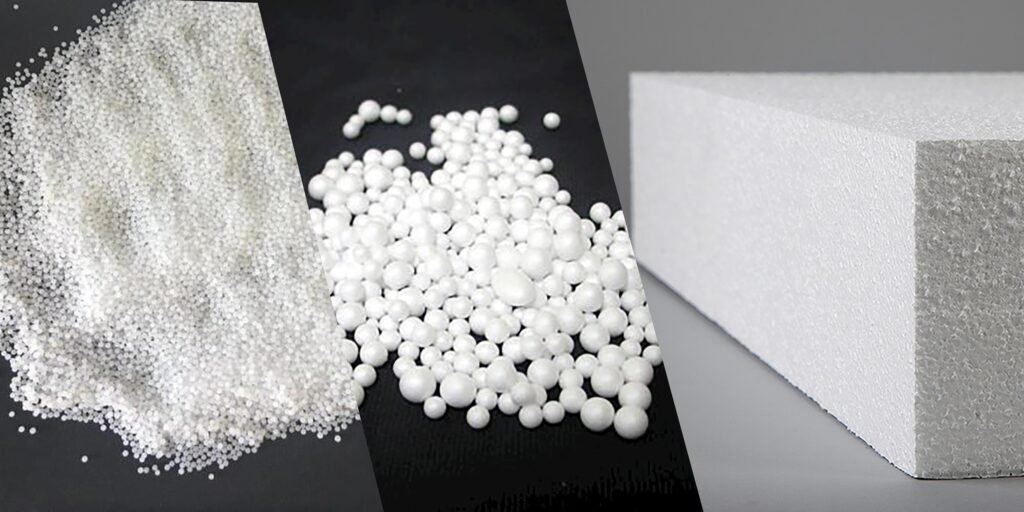With the world increasingly focused on sustainability and energy efficiency, the quest for better building materials has taken centre stage. Insulation is a fundamental aspect of modern construction, playing a pivotal role in energy conservation and climate control within residential and commercial structures.
Among the variety of insulation materials available, expanded polystyrene foam has emerged as a frontrunner, offering distinct advantages that stand out in the realm of insulation solutions.
Characteristics of Expanded Polystyrene Foam
Expanded polystyrene foam, often referred to as EPS, is a rigid and sturdy insulative material composed of polystyrene polymer and a foaming agent. When subjected to heat, the polymer matrix expands, creating a lightweight foam with a host of desirable properties. EPS is notable for its excellent thermal resistance, moisture resistance, and structural integrity, making it an ideal candidate for insulation applications.
Thermal Efficiency of EPS
The principal advantage that makes expanded polystyrene foam a choice material for insulation is its high thermal efficiency. Its structure, consisting of innumerable tiny air pockets, significantly reduces heat transfer, thus maintaining temperatures within a building.
The capacity to retard both heat loss in colder climates and heat gains in warmer regions makes EPS an extremely versatile insulating medium.
READ MORE : 5 Ways a Skilled Yoga Teacher Can Elevate Your Practice
Moisture Resistance
Another significant feature of expanded polystyrene foam is its resistance to water absorption. Moisture can severely compromise the effectiveness of insulative materials, but EPS maintains its structural integrity and insulative properties even in damp conditions.
This characteristic is pivotal in preventing mold growth and provides a contributory benefit towards a healthier living environment.
Environmental Impact
In discussions about insulation materials, the environmental impact is a pressing concern. EPS is a standout choice owing to its longevity and energy-saving potential. While the production process of EPS is energy-intensive, the material compensates with its long service life and significant reduction in energy consumption for heating and cooling. Furthermore, EPS is recyclable, making it a more sustainable option amongst insulation materials.
Installation and Versatility
EPS is incredibly lightweight, which simplifies handling and installation. Its versatility is evident in the various forms it can be manufactured into, including sheets, blocks, and customized shapes to fit any design specifications. The ease of installation often translates to reduced labour costs, a benefit that resonates well with building professionals and property owners alike.
Cost-Efficiency
Cost efficiency is a critical factor in the selection of building materials. Expanded polystyrene foam is cost-effective, not only in terms of the initial purchase price but also considering its long-term savings potential through reduced energy bills. It is a cost-competitive alternative to other materials like fibreglass or cellulose, offering superior insulation value for an equivalent thickness.
Fire Performance and Safety
Safety is a primary concern in the construction industry. Expanded polystyrene foam includes fire retardant additives that inhibit the spread of flames. It is important to note that all insulative materials must comply with stringent fire safety regulations. When properly installed with appropriate fire barriers and in accordance with building codes, EPS proves to be a safe insulation choice.
Resistance to Aging
Expanded polystyrene foam boasts an impressive resistance to aging. Over time, many insulation materials degrade, settling, or compacting which reduces their insulative properties. However, EPS retains its shape and effectiveness over extended periods, ensuring energy efficiency remains unaltered for the lifespan of the building in which it is installed.
Sound Insulation Properties
Soundproofing is an essential consideration, particularly in urban environments and in buildings where noise reduction is necessary. EPS demonstrates a moderate sound insulation capacity, absorbing acoustic energy and contributing to quieter, more peaceful interior spaces—a supplemental benefit to its thermal insulation capabilities.
Future Prospects
The future prospects for expanded polystyrene foam in the construction industry look promising. With ongoing research and technological advancements, manufacturers are constantly improving EPS properties, such as fire resistance and compressive strength. The development of new additives and manufacturing methods continues to augment the performance of EPS, solidifying its role in future insulation applications.
Conclusion
The construction sector is in a continuous state of evolution, demanding more from the materials it employs. In terms of both performance and sustainability, expanded polystyrene foam meets these demands.
Embracing EPS for insulation is a forward-thinking approach to building design, offering a multitude of benefits that make it a key player in the future of insulation material solutions. With its combination of thermal efficiency, moisture resistance, cost-effectiveness, and environmental stewardship, EPS is a material that aligns with the trajectory of sustainable, energy-efficient construction.
In conclusion, the potential of expanded polystyrene foam in meeting the insulation needs of contemporary and future buildings is immense. Its contribution to the creation of environmentally conscious, energy-efficient, and cost-effective living and working environments cannot be overstated.
Developers and builders who adopt EPS are not only investing in the longevity and resilience of their structures but are also participating in the stewardship of global resources for generations to come.
By leveraging the properties and advantages of EPS, stakeholders in the construction industry can innovatively address the challenges of modern-day building requirements. As awareness of its benefits continues to grow, expanded polystyrene foam is well-positioned to remain a leading insulation material in the years ahead, fostering a paradigm shift towards more sustainable, efficient, and economically viable construction practices.

